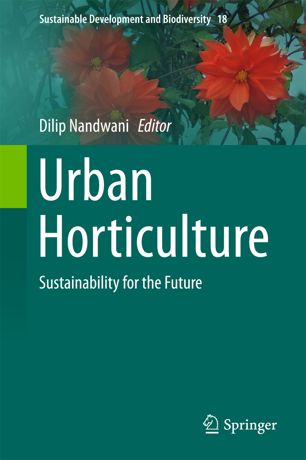

Most ebook files are in PDF format, so you can easily read them using various software such as Foxit Reader or directly on the Google Chrome browser.
Some ebook files are released by publishers in other formats such as .awz, .mobi, .epub, .fb2, etc. You may need to install specific software to read these formats on mobile/PC, such as Calibre.
Please read the tutorial at this link: https://ebookbell.com/faq
We offer FREE conversion to the popular formats you request; however, this may take some time. Therefore, right after payment, please email us, and we will try to provide the service as quickly as possible.
For some exceptional file formats or broken links (if any), please refrain from opening any disputes. Instead, email us first, and we will try to assist within a maximum of 6 hours.
EbookBell Team

4.8
34 reviewsThis book provides comprehensive information on the rapidly developing field of urban horticulture for sustainable use of land resources and creating a better environment. It presents peer-reviewed chapters from leading international researchers in the field of horticulture technologies, environmental issues, urban horticulture, and landscaping and its role in society. It covers a wide array of topics on this subject and constitutes a valuable reference guide for students, professors, researchers, builders, and agriculturists concerned with urban horticulture, city planning, biodiversity, and the sustainable development of horticultural resources.
Urban horticultural technologies facilitate the efficient use of available land in urban and residential areas, helping meet the demand for fresh fruits and vegetables to feed ever-growing urban populations. The amount of green space in urban areas is dwindling due to rising land prices, while the climbing numbers of multi-story buildings are producing various environmental and health issues. Technological advances provide tools and techniques for high-density and vertical cropping in small areas, promoting efficient and sustainable resource utilization. As such, urban horticulture is gaining importance in city planning – not only to bolster the food supply but also to improve the aesthetic value, environmental conditions, landscape, and business environment, while also reducing the consumption of fossil fuel in transportation.